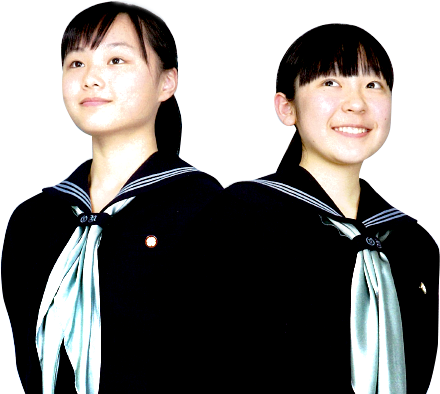SURVIVE – Ritsumeikan Uji High School 高校生国際会議にチャレンジ!
2022年2月13日~2月20日にかけて行われたオンラインによる高校生国際会議 Global Youth Fair SURVIVE – Online International Conference に本校の高校3年生のH.N.さんとM.T.さんが参加しました。
このプログラムは、立命館宇治高等学校がWWLの一環として取り組んでいる日本と海外の高校生による国際会議です。「荒廃した未来の世界を話し合う国際会議」で、SDGsが達成されなかった2030年以降のシチュエーションを設定し、その状況の課題に対しての解決策を創出するものです。今回のテーマは、SDGs No. 2の「飢餓をゼロに」。「SDGsの想定する未来に新しい視点」を得ることで、「高校生にとってのより『自分ごと』な議論」を目指した会議では、国内外からの高校生が分科会、全体会を通して、活発な議論が交わされました。

参加した高校生は、本校を含めた国内14校とカンボジア、香港、インドネシア、台湾、フィリピンの高校の代表の生徒たちです。この高校生たちと社会人有識者の方々が、各グループを作成し、それぞれのトピックについて議論を重ねて、未來のための提言を作りました。この会議は国際会議として、進行はすべて英語で行われました。参加した日本、アジアの高校生の皆さんは、それぞれがこれまで取り組んだ成果をもとに熱い議論を英語で交わすことができました。
このSURVIVE に出場した本校の高校3年生からレポートを日本語と英語で紹介します。
SURVIVE チャレンジ・レポート 高校3年 M.T.
立命館宇治高等学校が主催する、Global Youth Fair SURVIVE!に参加した高校3年のM.T.です。 この高校生国際会議プログラムは、SDGs達成目標の2030年以降、何一つSDGsが達成されない世界がきたという仮定で解決策を模索していく生徒主体の課外プログラムです。
今回の軸となるSDGsは2番の「飢餓をゼロに」でした。それを元にConsumption, Production, Food Culture の3つのグループに割り当てられ、私はConsumptionグループで1週間活動しました。自分たちの国で将来発生しうる食の問題に関する事前課題 が課され、私たちはそれぞれ調べてきた内容を共有し、中から一つ選び、解決策を考えていきました。生徒たちは日本をはじめフィリピン、カンボジアなどのグローバルなメンバーg参加しており、私のグループにも台湾の学生やフィリピンの生徒が参加していました。
Day1では開会式、Day 2では中間プレゼン、Day 3にスペシャリストの方からのフィードバックを踏まえて最終プレゼンを行いました。また、間にFriendship Event が開催され、SURVIVE!を超えての素晴らしい仲間と知り合う良い機会になりました。SURVIVE!では食料問題を中心に議論が繰り広げられ、今まで食に注目してこなかった自分としては新しい視点をもつ良いきっかけとなりました。食料不足が招く栄養バランスの崩壊は私たちからは程遠い議題のように思われましたが、実際には今でも起こっている地域があり、早期対策が必要だということを教えられました。同時に、この危機を乗り越えるためには世界規模の協力が必要不可欠であることを再確認しました。また、このイベントを通してチームワーク力が培われました。海外からの参加も多く、タイムゾーンが異なっていたのでミーティング時間を考慮しました。
このSURVIVE!を通して、さまざまな角度から物事を見つめることの重要性を学びました。今後は、私も多角的視点を持つよう心がけていきたいと思っています。主催の立命館宇治高等学校の皆様を始め、関わったすべての方に感謝申し上げます。
My Report on SURVIVE in English – M. T.
I’m M. T. and I joined in Global Youth Fair-SURVIVE! Hosted by Ritsumeikan Uji High School from the 13th to the 20th. This program set the time period in a broken world after 2030, where none of the SDGs were achieved, and we had to devise a solution towards the issues that may arise.
The core of this event was set on SDGs number 2, “Zero Hunger”. Based on this, all participants were divided into 3 groups, which were Consumption, Production, and Food Culture, and I was a member of the consumption group. Prior to the event, we were given a worksheet task, in which we were assigned to research about potential tasks related to food in our own country that may occur from the year 2030. We shared it, and chose a task we were going to focus on as a group. The students came from various countries, from Japan to the Philippines, and Cambodia. In fact, my group members were from the Philippines and Taiwan.
We had an opening ceremony on Day 1, a mid-presentation on Day 2, and made a final presentation on Day 3 based on the feedbacks we received from specialists in each group. During SURVIVE! week, the admins hosted a Friendship Event using Kahoot! and Zoom, and it was an amazing opportunity to interact with friends from around the world. In SURVIVE, we mainly discussed on food insecurity, and it became a great chance for me, a person who had never paid attention to topics related to food, to earn a new perspective. Destruction of nutritional balance caused by malnutrition seems like an issue of a far-away country, yet this is an occurring problem in some parts of the world, and this event taught me that early measures are necessary. At the same time, we realized once again that teamwork in a global scale was indispensable. Moreover, skills such as teamwork was nurtured throughout this event. Since many were from different countries with different time zones, we had to consider that when hosting meetings in our group. From SURVIVE, I learned the importance of observing topics from various viewpoints.
From now on, I would like to hold a multi-lateral perspective when considering several issues, and would like to make use of the skills and knowledge gained from SURVIVE in my future career. Finally, I would like to extend my sincere thanks to all involved in this program.
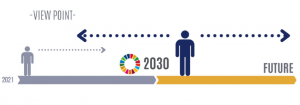
SURVIVE チャレンジ・レポート 高校3年 H. N.
このSURVIVEプログラムでは、2030年以降に起こりうる飢餓に関する問題(SDGs2)を想定し、その解決に向けたアイデアを創出することを課題としました。その上で、グループ(生産、消費、食文化)に分かれ、グループメンバーと共に作業を行いました。
私は、このグループプロジェクトやプレゼンテーションを通して、社交性や協調性を磨くことができ、マンダラチャートなどのツールを使ってより良いアイデアを組み合わせる方法や、共通の目標を達成するために妥協をしながら交渉する方法などを学びました。グループワークの経験はありましたが、他国の学生との交流は新鮮で、これまで知らなかった文化や状況への理解を深めることができました。素晴らしいリーダーを得たことで、相手の話をよく聞き、全員に公平に発言する機会を与えることが、革新的な解決策を生み出すために重要であることに気づかされました。
私自身、これから大学に進学します。大学入学後は、母国語が違う人たちと議論する機会があります。そこで学んだ知識を活かし、言葉の壁がある中でも、誰にでも公平に発言の機会を与えられるような、積極的なリーダーを目指したいと思います。 立命館宇治を始め、チャンスを作っていただいた方々、ありがとうございました。
My Report on SURVIVE in English – H. N.
In this program, participants will be required to envision the problems related to hunger (SDGs 2) that may occur after 2030 and create ideas for solution to these problems. You will be assigned to a group (Production, Consumption or Food Culture) and work with your group member.
Through the group projects and presentations, we were able to hone our sociability and cooperation skills, where we learned how to combine ideas into better one using tools like the Mandala chart and how to bargain using compromises to achieve a common goal. Although we already experienced working in group before this event, engaging with students from other countries was a refreshing experience that helped me gain more insight into previously unknown cultures and situations. Having a great leader, I noticed that listening carefully to others and giving everyone a fair chance of speaking up is important to make the solution innovative.
After entering university, I will have opportunities to discuss with people who grew up differently with different mother tongue. I wish to utilize the knowledge that I learnt to be a leader who can stay proactive and give everyone a fair chance of speaking even under the circumstance of linguistic barrier. Thanks a million for all who created and provided this opportunity.

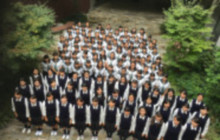
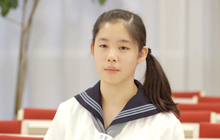
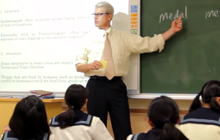



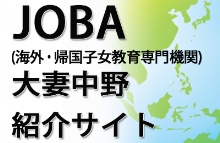
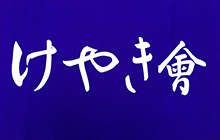
 facebook
facebook youtube
youtube LINE
LINE twitter
twitter